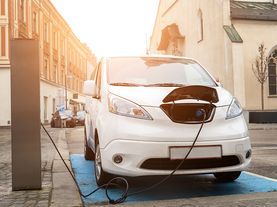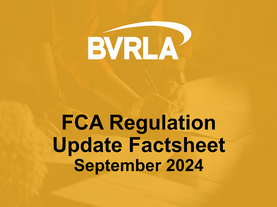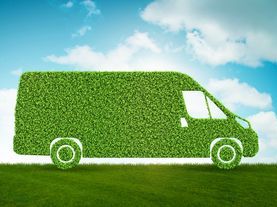What are Rules of Origin and how could they impact the electric vehicle market in 2024?
Please note: a proposal was put by the EU to member states on Wednesday 6 December 2023. It would see the current terms extended by three years. The proposal is due to be voted on w/c 11 December 2023. Once any terms are accepted or rejected, this page will be updated in kind.
The UK-EU Trade Cooperation Agreement (TCA) came into effect from 01 May 2021. It set out the post-Brexit terms of the UK’s trading relationship with the EU.
Within the agreement was a temporary exemption to tariffs imposed on products that aren’t ‘substantially made in Britain or the EU’. These align with ‘rules of origin’ requirements, from which import and export duties are determined. Vehicles that meet the rules of origin requirements currently qualify for the EU’s zero tariff, zero quota regime.
Without a new deal being struck, vehicles made in the EU and with a battery as the primary source of power (including Battery Electric Vehicles, hybrids and plug-in hybrids) may be susceptible to import tariffs when the temporary exemption lifts on 1 January 2024.
A 10% tariff will be applied to vehicles being traded between the EU and UK if they do not meet the manufacturing threshold. It is designed to incentivise vehicle manufacturers in the EU to invest in battery technology to become self-sufficient and less reliant on external imports.
The impending deadline creates a great deal of uncertainty for BVRLA members and their customers.
Questions have arisen around:
-
How and where will tariff costs be absorbed or passed on at each stage of the supply chain?
-
What is the impact on competition between EU-made vehicles and those imported from other markets – such as China?
-
Is there a knock-on effect for production volumes, if certain models become too expensive to produce or import?
-
How can customers be kept updated with their order price and vehicle availability?
This document addresses the most common concerns of BVRLA members around the UK-EU Trade Cooperation Agreement. It seeks to inform and guide members ahead potential changes to the agreement coming into effect from 31 December 2023.
Members with any questions or concerns should read on. The BVRLA remains on hand for any further conversations and can be reached at [email protected].
Q: When are the rules of origin changing for vehicles?
A: The current exemption for vehicles that are not ‘substantially made in Britain or the EU’ expires on 31 December 2023.
Q: Will a last-minute deal be struck?
A: A new deal has not been confirmed but a proposal was put by the EU to member states on 6 December 2023. If it passes the vote, due w/c 11 December, it would see the current terms extended by three years.
If the proposal is rejected, there is the possibility of a temporary ‘rollover’ of the current terms for a defined period.
Trade bodies across Europe have called for the new requirements to be delayed until 2027. This is to give the UK and EU more time to upscale its battery production capabilities.
A more impactful outcome would that the tariffs will begin to be applied on vehicles delivered from 01 January 2024.
Q: Which vehicles will be impacted by the changes?
A: Vehicles that do not meet the threshold of being ‘substantially made in the UK or EU’. The threshold is due to come into effect from 1 January 2024 and will be lowered each year to incentivise greater manufacturing and parts supply from within the EU. The threshold is determined by the how much of the vehicle’s value is made up of originating and non-originating parts. Compliance with the terms will vary from vehicle to vehicle, or even between different variants of the same model.
Q: What qualifies a vehicle as being ‘substantially made in the UK or EU’?
A: The threshold is based on the value of parts and materials used in the manufacture of a vehicle. From 1 January 2024, the maximum value of ‘non-originating’ parts (ie: from outside of the EU) cannot exceed 55% of the product. This upper limit is due to decrease each year until reaching 45% from January 2027.
A separate upper limit is also applied to the battery itself, where a maximum of 40% can come from outside the EU.
Vehicles that fall below the threshold qualify for originating status and will not be subject to the tariffs.
Q: Are the terms the same for all vehicle types?
A: The Trade Cooperation Agreement acknowledges the differences in how hybrid, plug-in hybrid and electric vehicles are manufactured. Petrol and diesel models manufactured in the EU meet the exemption criteria due to the established production facilities across the region.
The EU’s battery production capabilities are behind those of other markets, which has led to vehicles with large battery packs relying on parts and materials from non-EU markets. As such, the expected changes are only due to impact the import of vehicles with large battery packs (including BEV, hybrid, and plug-in hybrid).
Q: Are vehicle manufacturers going to import fewer parts from Asia?
A: It is unlikely in the short term that supply chains will change sufficiently for the current supplies from Asia to be surplus to requirements.
Q: What about vehicles made outside of Britain and the EU?
A: Vehicles manufactured outside of Britain and the EU are not covered by the Trade Cooperation Agreement so are not impacted by the potential changes. They will be covered by other trade agreements in place between Britain and their respective countries of origin.
Q: How much will the tariffs be?
A: The financial impact will vary from model to model based on the varying number of parts that are imported from outside of the EU for each respective vehicle. The SMMT has reported that an average price increase of £3,400 could be seen on EU-manufactured BEVs sold in Britain.
Q: Will tariff costs be passed down the supply chain?
A: The impact on BVRLA members and their customers remains to be seen. Any price changes are at the discretion of the supplier.
Q: Do I need to pass any increases to my customers?
A: Pricing decisions are at the discretion of the BVRLA member providing the vehicle.
Q: Will prices change for vehicles on order now but due for delivery in 2024?
A: It is possible that prices will change if the vehicle(s) on order are subject to tariffs from 01 January 2024 onwards.
Q: What do I tell my customers?
A: While the situation is still unknown, BVRLA members are encouraged to manage the expectations of their customers as accurately as possible. It is worth being open with those with vehicles on order now – or placing orders before the end of 2023 – that the vehicles may be subject to additional tariffs from 1 January 2024. It should be communicated that these tariffs are not yet confirmed and are implemented at a European level.
Q: How will it impact the transition to Battery Electric Vehicles?
A: The risk of price and vehicle availability changing between orders being placed and vehicles being delivered creates uncertainty. Customers and vehicle providers need to know what costs and timings they are working to, so the uncertainty while a solution is found could damage customer confidence.
Thank you for reading this resource. If you have any further questions or concerns, please contact the team at [email protected].
Read more guidance




